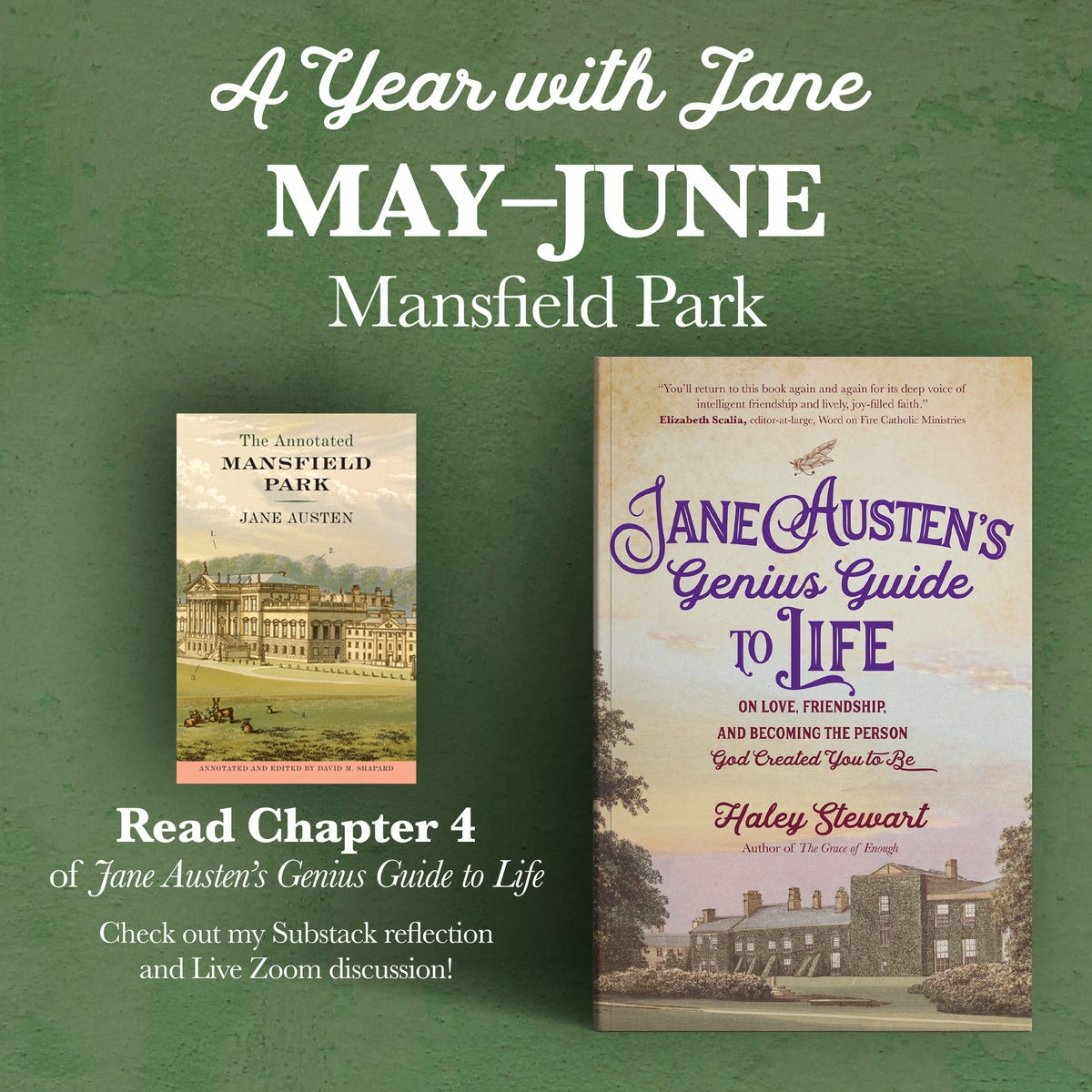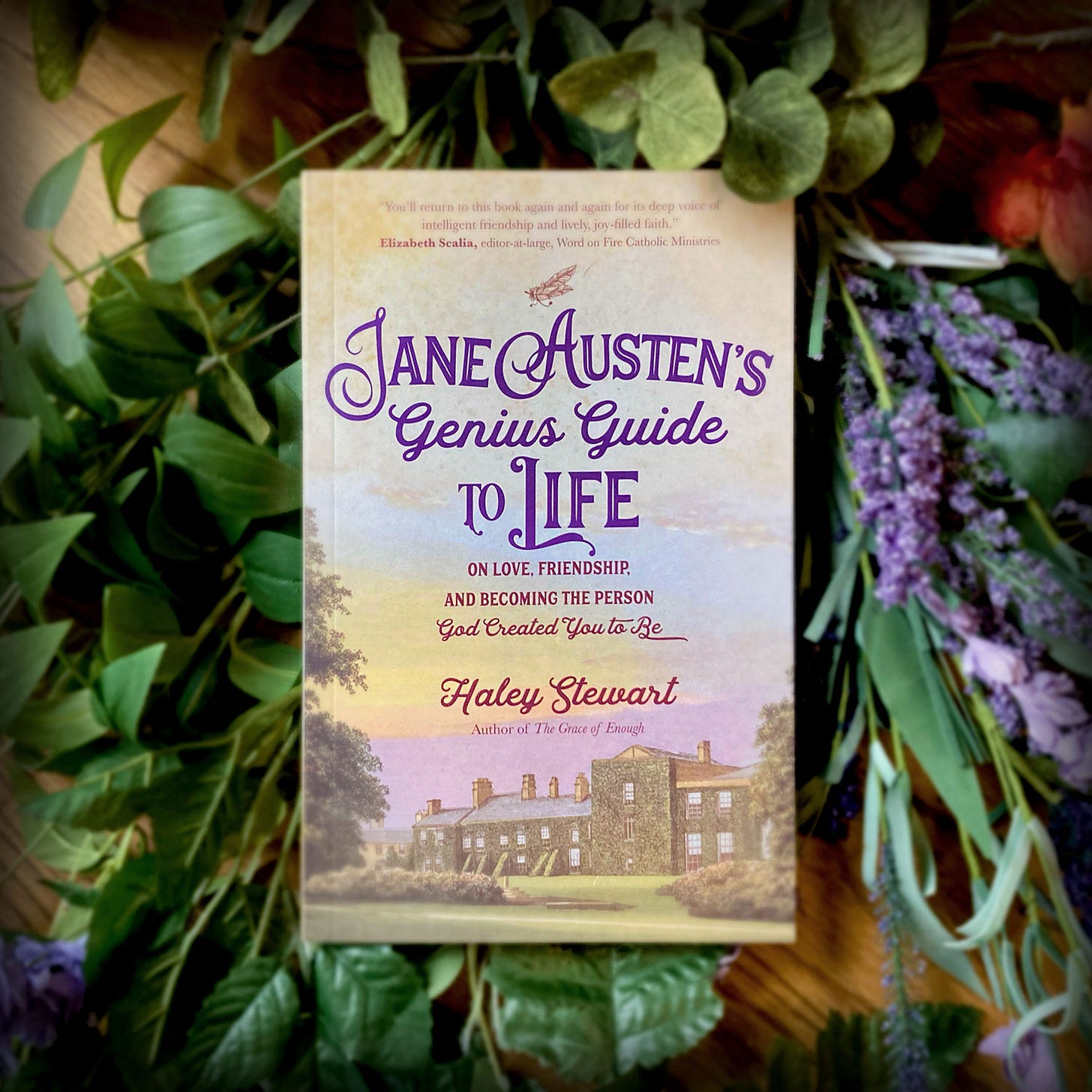Slavery in Mansfield Park
Where the Bertrams Get Their Wealth and What Austen Is Trying to Tell Us
If you’re new to this Substack, one of the things I’m offering subscribers in 2023 is A Year with Jane. We’re reading through Austen’s six novels this year and Mansfield Park is our read for May and June.
This is a reader-supported publication. To receive new posts and support my work, consider becoming a free or paid subscriber.
I’m only ONE day behind on this week’s reflection! Everybody clap!
In last week’s reading there’s a big shift and it’s due to Sir Thomas’s return to Mansfield after his trip to Antigua. It’s important to consider the historical context here or you can miss some keys to understanding Sir Thomas and the Bertrams.
That Trip to Antigua
Let’s start with the basics. Sir Thomas had to go check on business in Antigua. What kind of business might he have in Antigua? He’s a plantation owner. Or at least, from historical context I think we can safely assume that’s what it means to own an estate in Antigua at the turn of the 19th century. The Bertrams’ wealth was produced by the exploitation of enslaved people.
This article also notes that Sir Thomas is a member of parliament during a time when abolition of the slave trade was being hotly debated. So this tells us that Sir Thomas was also familiar with arguments in favor of abolition—he wasn’t unaware of the immorality of the slave trade. In fact some interpretations of the novel suggest that Sir Thomas was in favor of abolition of the slave trade but was simultaneously benefitting from this unjust system by expanding his wealth with his plantation (probably producing sugar).
There is significant evidence that Austen was an abolitionist. From her letters we know which poets and writers she was reading and some of her favorites had a strongly abolitionist message. There’s also conjecture that for Austen’s brothers in the navy, encountering a slave ship and its horrors was not unlikely and this may have also influenced her opinion on the slave trade.
Of course, it’s nice to imagine that our favorite writers share our views on the evils of history. But I don’t think this is just wishful thinking. Abolition was a big issue of the day and would have been discussed in Austen’s family and social circle. Austen’s novels focus on small community life, not big historical events. Just consider how much was happening in the French Revolution during Austen’s life (her cousin’s husband was executed by the guillotine). And yet, this is not a focus of her novels—but it would be bizarre to think the revolution was not a point of conversation for her family and friends! In short, the fact that Austen references slavery at all in her novels speaks to her marked interest.
And then let’s look at what we find in the text. The slave trade is a point of conversation at the Mansfield Park dinner table because Fanny herself asks about it—and her question is met with an awkward silence.
I think that this important detail about the source of the Bertrams’ wealth is essential to understanding Sir Thomas. The grandeur of his estate is a veneer of respectability over rotten foundations and Mansfield Park itself is a metaphor for the family that lives there. None of the Bertram children have developed a strong moral backbone (although Edmund is trying!). As we will see in the coming chapters, Sir Thomas is confused by this. Why haven’t they been formed by the virtues he has tried to pass on to them? My guess is that you cannot teach what you do not know. They have been formed by what Sir Thomas has modeled: moral inconstancy. Choosing pleasure over choosing what’s right is what has been modeled for them—despite the efforts to cover over the moral decay with social respectability.
For this week’s discussion question, How does Mansfield Park change due to the return of Sir Thomas? What do you think of him as a father? Does he have good qualities as well as faults?
Reading schedule:
Week of May 7th:
Gather your books. There are many editions out there, so just grab what’s on your shelf or at the local library. And if you enjoy audiobooks, this is an excellent novel to enjoy with a great narrator. My favorite for this novel is Juliet Stevenson’s audiobook version. Grab Jane Austen’s Genius Guide to Life from Ave Maria Press (use STEWART20 for 20% off) or from Amazon.
If you didn’t start reading with us in January, you may want to catch up by reading the Introduction and Chapters 1-3 of Jane Austen’s Genius Guide to Life to set the stage.
Week of May 14th:
Chapters 1-9 of Mansfield Park
Week of May 21st:
Chapters 10-18 of Mansfield Park
Week of May 28th:
Chapters 19-24 of Mansfield Park
Week of June 4th:
Chapters 25-31 of Mansfield Park
Week of June 11th:
Chapters 32-40 of Mansfield Park
Week of June 18th:
Chapters 41-48 of Mansfield Park
Week of June 25th:
Chapter 4 of Jane Austen’s Genius Guide to Life
TBA: Zoom Discussion with special guests.
Caveat:
On the reading schedule I have suggested reading the chapter about Mansfield Park after finishing the novel. This is because as a reader I hate spoilers. But if you’ve already read the novel or are familiar with the story and want a resource to help you dive deeper as you re-read it, feel free to read Chapter 4 of Jane Austen’s Genius Guide to Life first.
I’ll be sending out weekly reflections and discussion questions to consider as you read. If you want to read faster or slower, go for it. This is fun, not homework.
If you know someone who would enjoy reading Austen with us for our Year of Jane, please share this post with him/her!
And I postponed our live Zoom on Emma because one of our special guests has had two unexpected deaths in her extended family (please keep her in your prayers). I’ll be in touch about that event when we’re ready to reschedule.
All Jane Austen book club emails and 2023 emails will continue to be available with a free subscription. But this is a reader supported effort. Consider supporting this literary Substack by upgrading to a paid subscription.
And if you know someone who would love this virtual book club, please share with them:
Looking forward to discussing Mansfield Park with you!
Haley
(Editor of Word on Fire Spark, Author, Former Podcaster)
Haley’s Children’s Mystery Series about Mouse Nuns
Haley’s Book on Jane Austen’s Novels
Haley’s Book about Radical Simplicity






I love what everyone is saying about how we all, like Sir Thomas, have our moral blindspots and areas of hypocrisy. Always good to be reminded that we are perhaps, more like the less pleasant Jane Austen characters than we might like to think. Sir Thomas returns the veneer of respectability and good order to Mansfield Park, but he is unable to make his children and their friends understand why their actions were intemperate. He can control them but cannot truly help them to become the people they could or ought to be. One thing I do appreciate about him as a character is that he begins to become better. He has his eyes opened to the true goodness of Fanny, who he has always underrated, and tries to at least fix that failure in his character/responsibilities even if it’s too late to help his other children change course. He also begins to realize how problematic Mrs. Norris is, though I always wish he would try harder to get her cruelty and silliness under control.
I totally missed the slavery question the first several times I read Mansfield Park--it was the movie that sensitized me to it, and though I know Jane Austen dealt with intimate questions, not global ones, I've always wished she were a *little* more forthcoming. Reading again this time, I thought Sir Thomas came across more or less as a decent human being. Flawed as a father--but who isn't? And his idea, of countering Mrs. Norris' excesses by being severe, is a pretty common mistake to make, I would guess. He was carrying all the moral weight on his own, with a useless wife, so I am inclined to be generous for his mistakes. Also, I've always thought Edmund had a moral compass-that it was just clouded by infatuation.